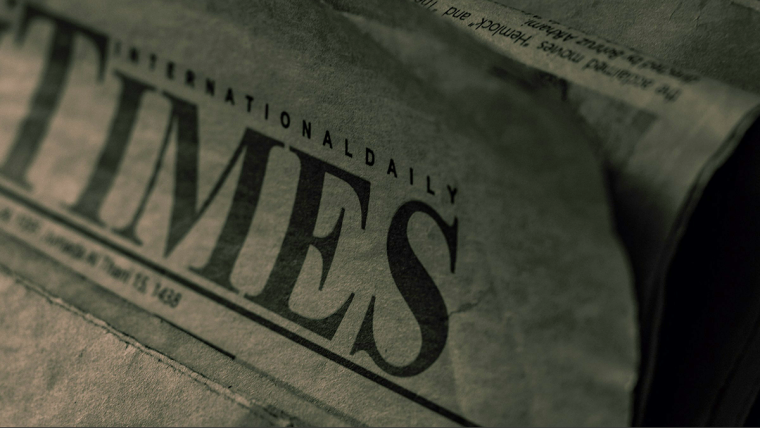In our Craft Capsules series, authors reveal the personal and particular ways they approach the art of writing. This is no. 207.

I am the type of fiction writer who leans on the real world for inspiration and guidance: newspapers, radio, stories from friends and loved ones, documentaries, and, of course, nonfiction books. I find I work best when confined by the margins of history, time, and geography. I’m comforted by the structure provided by real-life events, and the solidity of a foundation already in place.
When embarking on a new long-form fiction project, or deep in the quagmire of an existing one, nonfiction can often serve as an inspiration, or a lifeline, for writing. In the crafting of my own novel, Freedom Is a Feast, set in Venezuela from the 1960s to 2013, I found nonfiction companions that led to exciting detail, enhanced the voice of my characters, and gave a sheen of truth to my narrative.
There are different starting places when identifying nonfiction sources that might help you in your writing. My two favorites are: Important Moments and Important People.
Important Moments: What are moments of historical significance that take place during your narrative? How are your characters affected by these events? How does their world change because of them? In Jesmyn Ward’s novel Salvage the Bones (Bloomsbury, 2011), a teenage girl is trying to hide her pregnancy from her family, and then Hurricane Katrina strikes. In A Brief History of Seven Killings (Riverhead Books, 2017) by Marlon James, a diverse cast of characters, from small-time Jamaican gangsters to middle-class love-stricken women to CIA operatives, are figuring out their lives, converging on the attempted murder of Bob Marley in 1976. In Toni Morrison’s Jazz (Knopf 1992), a story of love, betrayal, and murder occurs in the midst of the Harlem Renaissance of the 1920s. The key here is identifying those defining historical moments, and then looking for books, articles, documentaries, that dig deep into that history. You’ll be surprised how easy it is to find interesting details to work into your narrative.
Part of my novel takes place during the 2002 coup d’etat against Hugo Chávez in Venezuela. While reading The Silence and the Scorpion: The Coup Against Chavez and the Making of Modern Venezuela (Nation Books, 2009), Brian Nelson recounts the state of Vargas Hospital during that time. My characters navigate that space during the book, and plenty of detail—from the chalkboard listing essential items the hospital lacks, to the triage system the hospital used—came from there. It’s one of my great joys in writing to take those details and make my characters interact with them, to fold them into my narrative in exciting and surprising ways.
Important People: Which historical figures played important roles in the time when your book takes place? What effect did they have on your world? On your characters? In Junot Diaz’s The Brief Wondrous Life of Oscar Wao (Riverhead Books, 2007), Dominican dictator Rafael Trujillo looms large, even years after his death. So does Arturo Pinochet in Isabel Allende’s The House of the Spirits (Knopf, 1982), even though he’s never named. Biographies can provide great texture, historical context, even voice to your project.
In Freedom Is a Feast, one of my main characters, Stanislavo, is based on Teodoro Petkoff, a family friend and Venezuelan historical figure. A revolutionary turned politician turned journalist with a mythical biography. I had so much material to mine in the crafting of my character, from Solo los Estúpidos No Cambian de Opinión: Conversaciones con Teodoro Petkoff (Editorial Alfa, 2006) by Alonso Moleiro, to Teodoro’s own writing as a journalist and essayist. I took details I felt were important to my narrative, and discarded others. For crafting my character of Tortuga, a prison kingpin that rules over the population of Cárcel Patria y Próceres, I combed newspapers chronicling the lavish and outlandish stories of real-life prison “pranes” in Venezuela, and combined attributes I found interesting to add to the life of the character I was creating on the page.
I like to think of it this way: My story, my characters, the emotional themes of the narrative, the main ingredients of the dish I was making, came from inside—they were things I needed to say. But a lot of the spice, the sauces, the sides of my book, I harvested from the world. I found inspiration in nonfiction books, in newspapers, documentaries, photography, and in stories passed down. I was stuck countless times, and I turned to nonfiction as a way out. You can do it too.
Alejandro Puyana moved to the United States from Venezuela at the age of twenty-six. In 2022 he completed his MFA at the Michener Center for Writers at the University of Texas in Austin. His debut novel, Freedom Is a Feast, will be published on August 20 by Little, Brown. His fiction has appeared in American Short Fiction, the American Scholar, New England Review, and other venues; his story “The Hands of Dirty Children” was selected by Curtis Sittenfeld for The Best American Short Stories 2020 (Mariner Books). He lives with his wife and daughter in Austin, Texas.
Art: Zoe






